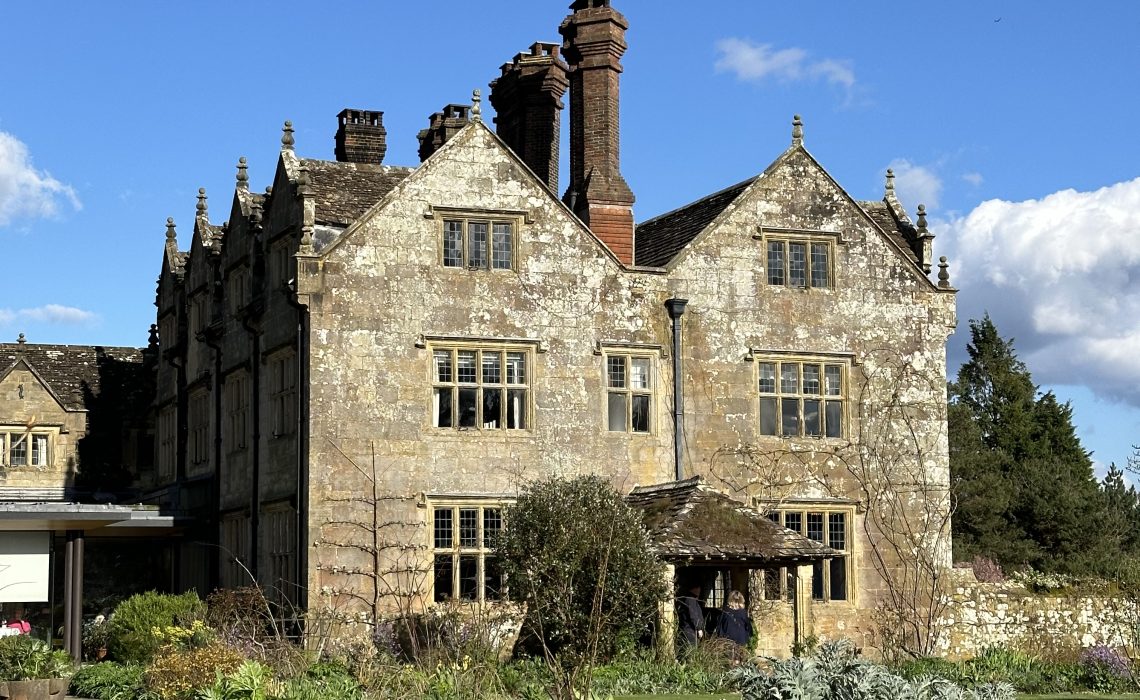
Is there anything better than the English country garden in the Spring? Two nights at Gravetye Manor makes you appreciate all that is good about this part of England. I swear it was a degree warmer! But that’s not it. Perhaps the locally produced English sparkling wine, the meadows and tranquil gardens littered with spring flowers, the warm comfortable welcome from the happy helpful Gravetye team and the excellent cuisine? Yes, absolutely.
But of course, for me there was more… some surprising hidden ‘goodness’ that radiates outwards from this stately, historic manor hotel….
As I spoke with Celine Leslie, Director of Sales & Marketing such an inspiring story unfolded of their support for biodiversity, ecology, the environment and the local community, through what they excel at – gastronomy and horticulture.
The Kitchen Gardens
Sussex seems to have all of the notable gardens! One of the last great kitchen gardens ever built, completed in 1904, and now managed with the bio-diversity of the site foremost, maximising the space for what they can draw from the land for the restaurants but also protecting the flora and fauna. Not just the insects and flowers, but maintaining traditional crafts like the Peach House, pollinating fruit under glass, preserving the six foot round sandstone kitchen garden wall and reusing the cut hazel/willow branches to provide supports for tall flowers. Sustainably preserving many of the crafts that were lost after the First World War and maintaining the heritage of this 400+ year property, the creation of the visionary gardener William Robinson (1815).
We loved exploring the gardens – spot their sprouting seed potatoes stood in egg-boxes in the Peach House in this short video.
There are much cheaper ways for sure of obtaining the fruit Gravetye Manor needs for its Michelin-starred restaurant, but maintaining these Espalier-trained fruit trees in the way advocated by William Robinson – the idea that you can grow your own in a small space – is exactly why this is such a special, authentic place.
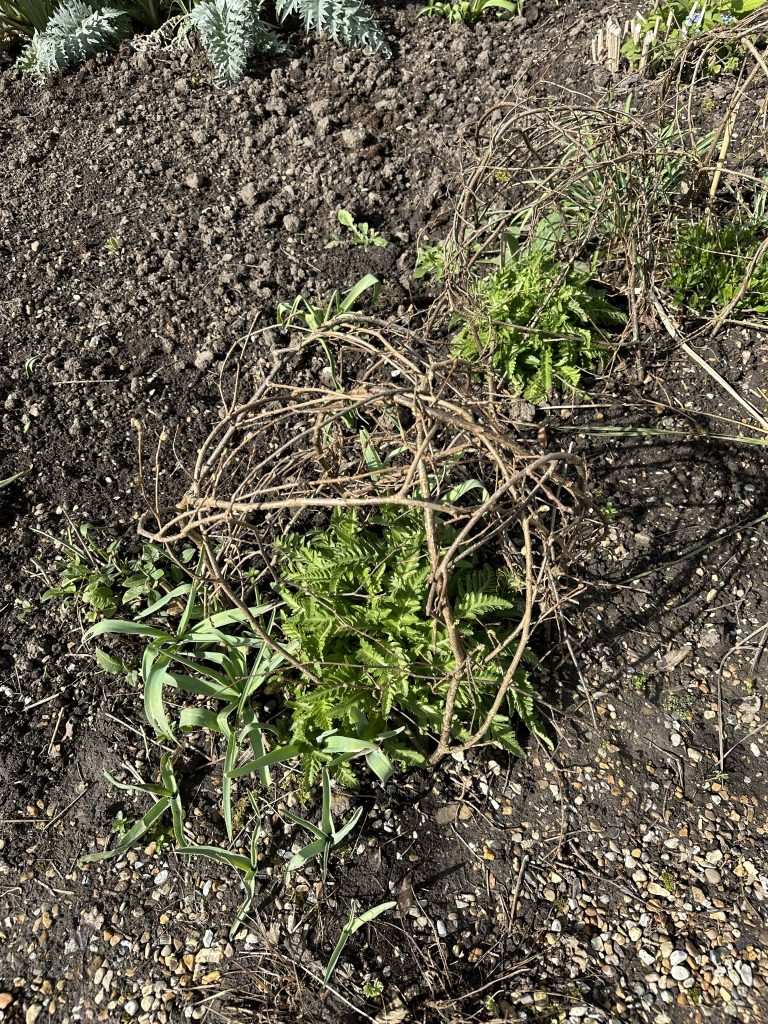
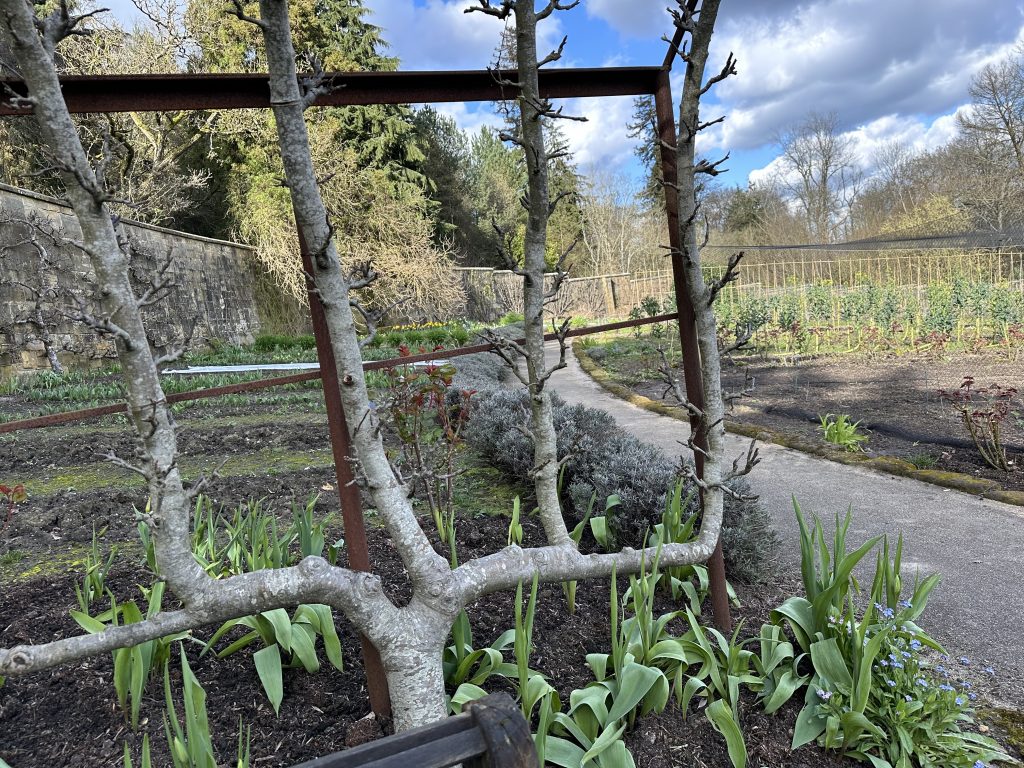
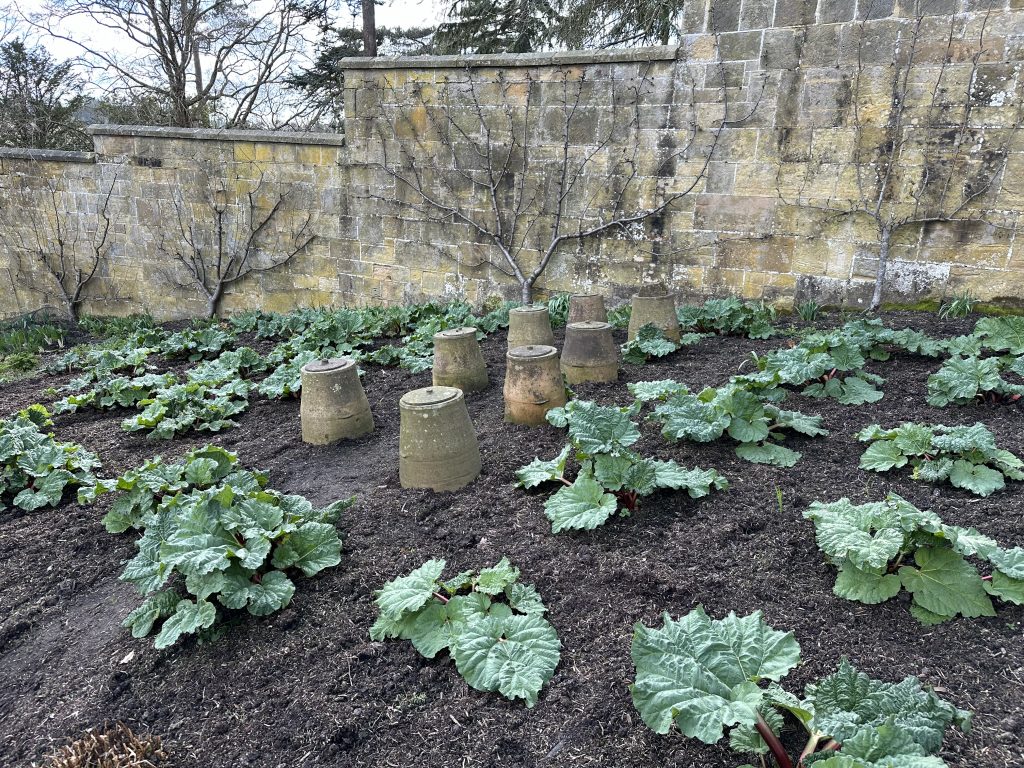
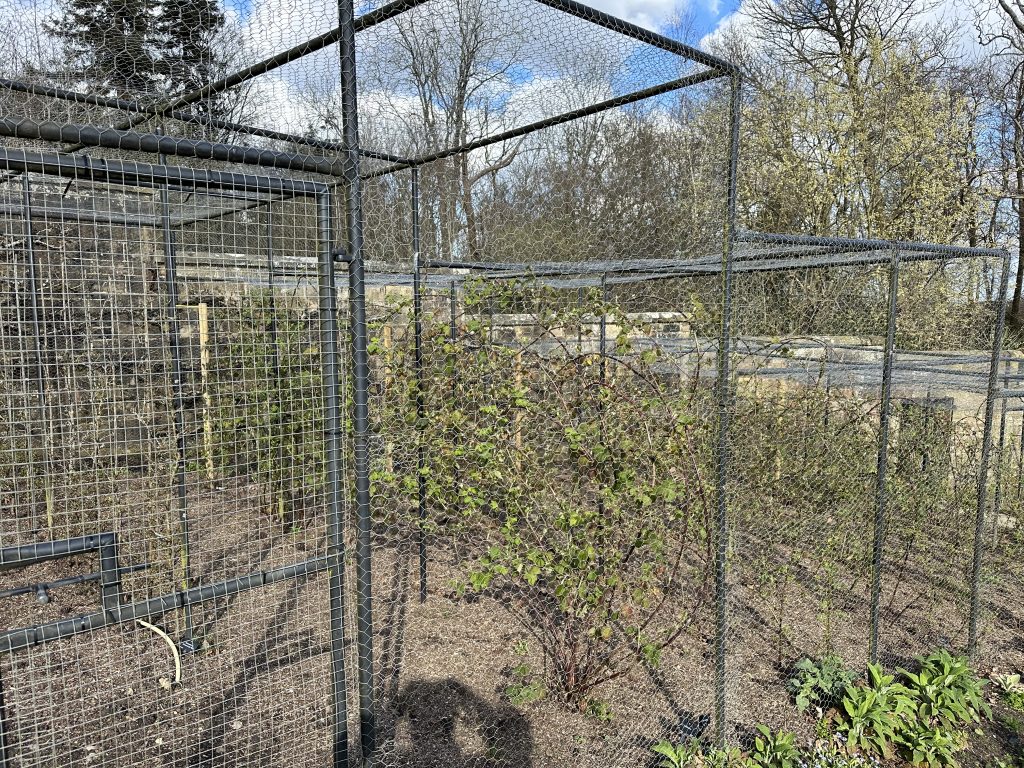
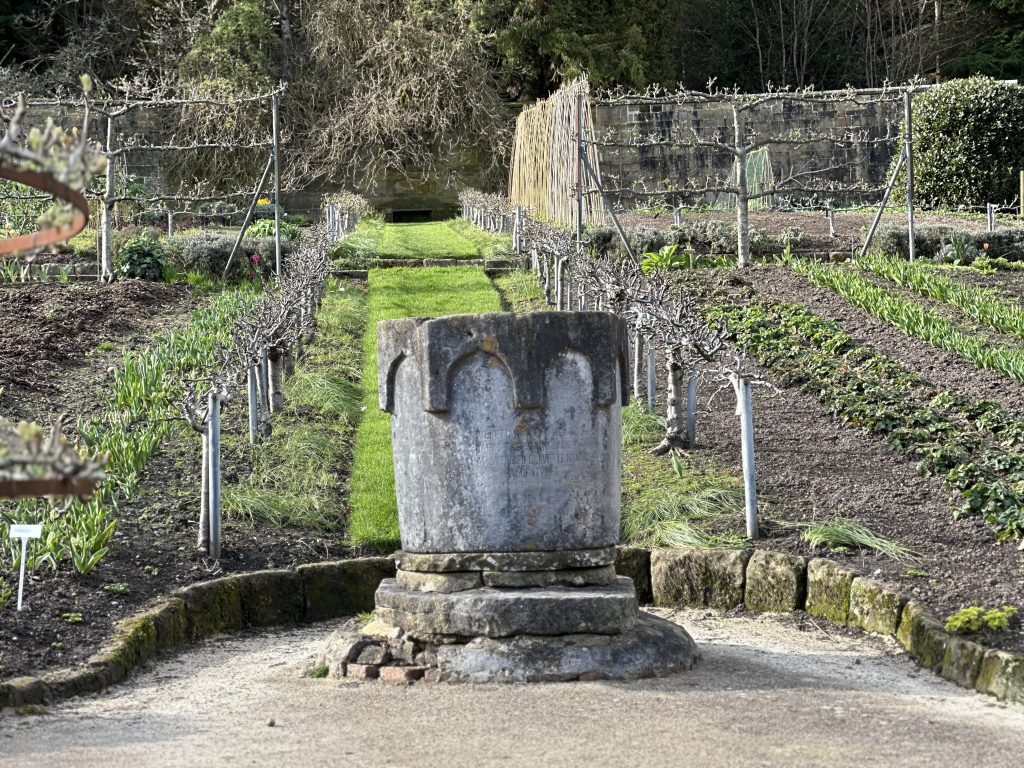
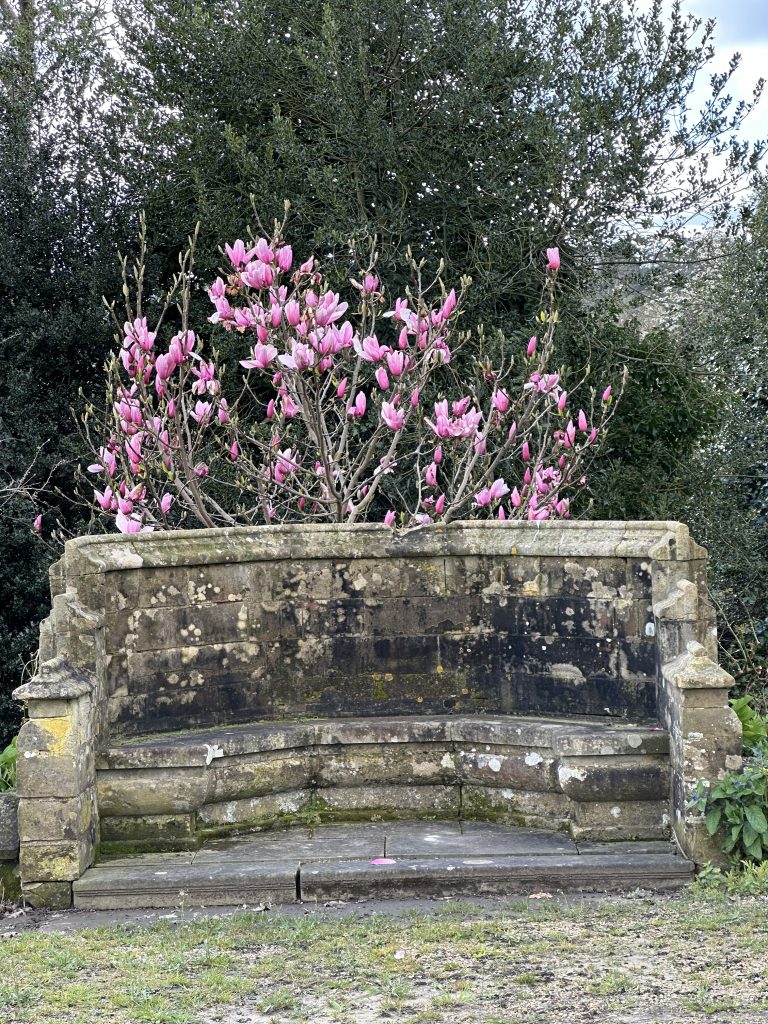
Growing their own sustainably, and all that encompasses – supporting their eight gardeners, paying their staff well, ensuring their chefs are not overworked – is largely what dictates the price of the exquisite menu here. Dealing with the fruit and vegetable gluts, conserving and bottling for future use, foraging for things like wild garlic, pressing apples for juice and preserving them for winter deserts, demands a huge resource. We must remember too this is a relatively small hotel, with just 17 bedrooms.
There is no doubt that there is a big chasm between people demanding to know the sustainability of the places they are staying and how much they are prepared to pay for it. Exactly why ‘greenwashing’ happens!
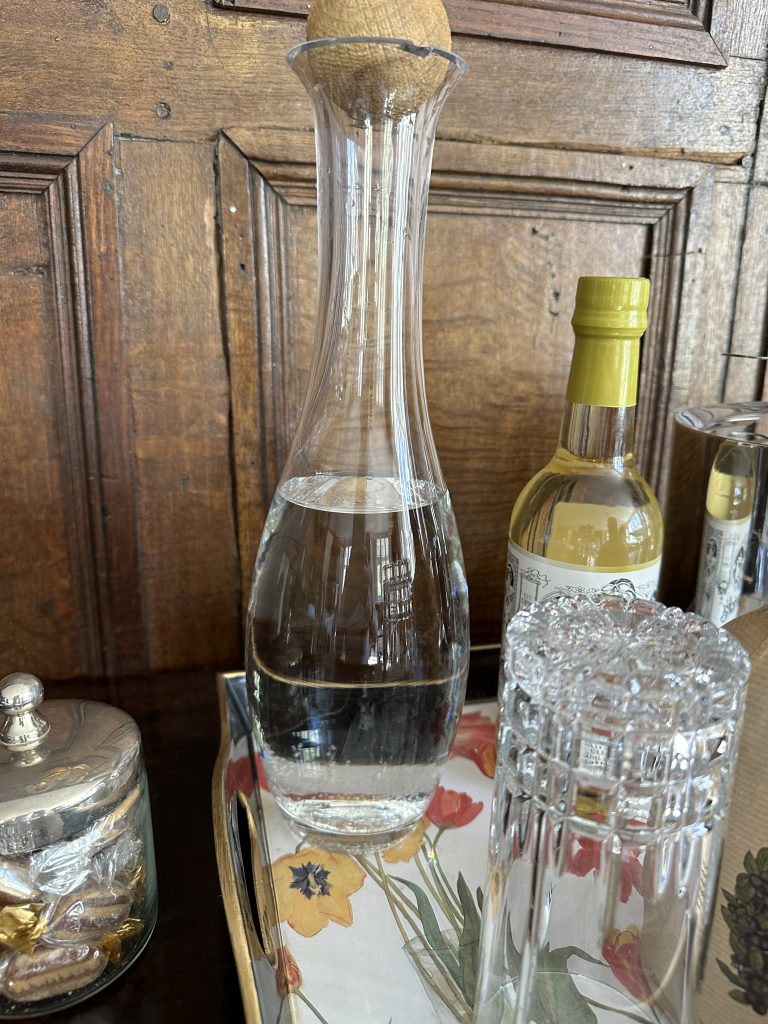
Spring Water and Buying ‘Local’
All of the water whether for guests, purified in house, or for watering the gardens, comes from an ancient spring. The chef made the kitchen a zero plastic tolerance environment a couple of years ago. Tough one that, and impressive to have achieved.
What can’t be grown here, wherever possible they source locally, that means within a 20 – 30 mile radius. In Sussex they are well served with excellent small local farms. Interestingly, much of the ‘in-between’ courses on our dinner were plant based, showing off the produce to its full. If you are a vegan, you would love to eat here, such variety. But they don’t for example not include beef on their menu from time to time, it’s about balance with nature.
Do you enjoy my writing?: Always optional, Donating even a small amount occasionally enables me to continue to be another voice for the environment, supporting organisations focussed on conservation and restoration through my blogs, video’s, giving my time on committees, raising awareness. Click on the Donate button, top right hand side of the page for more information on how I am contributing and why your donation counts.
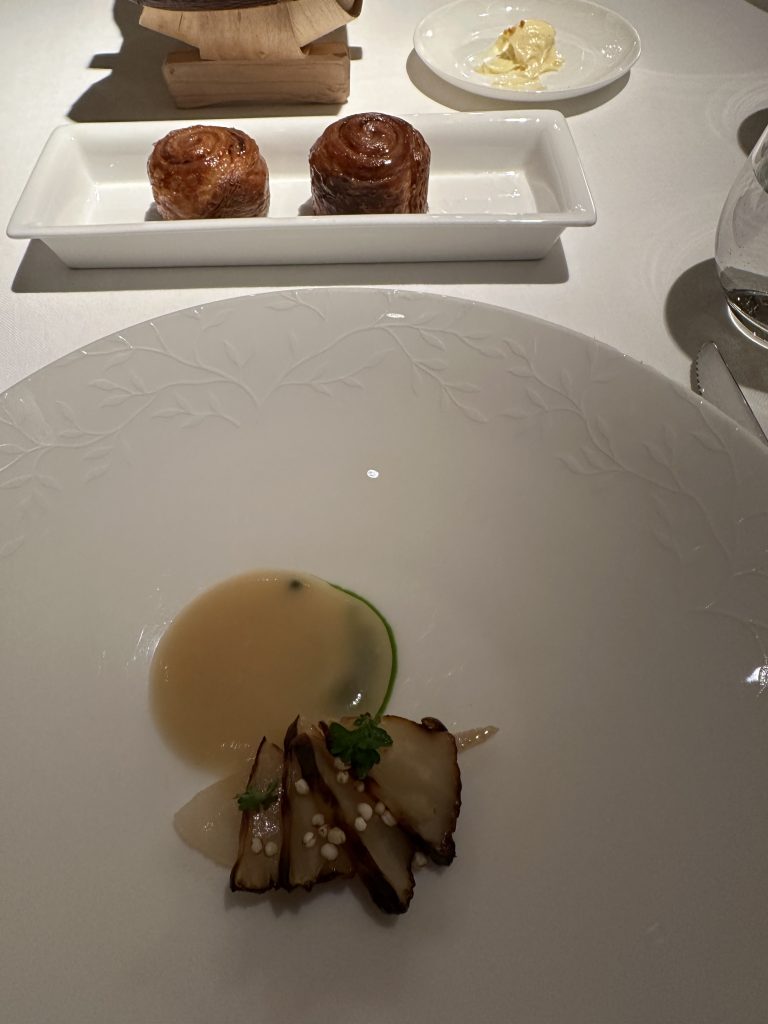
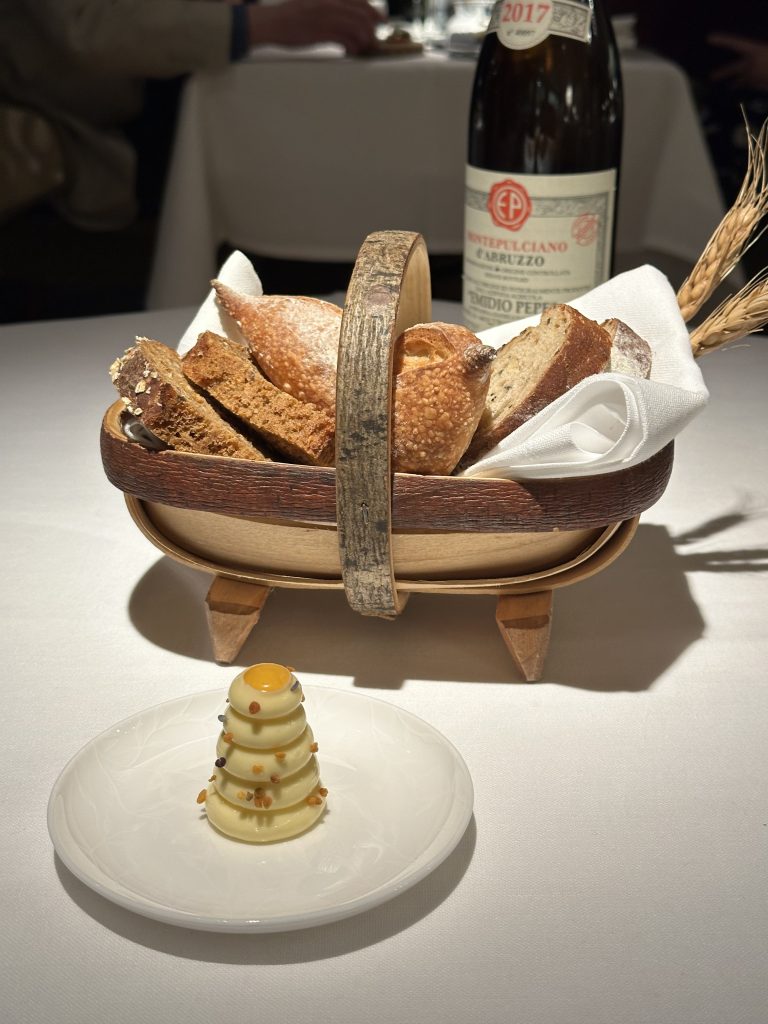
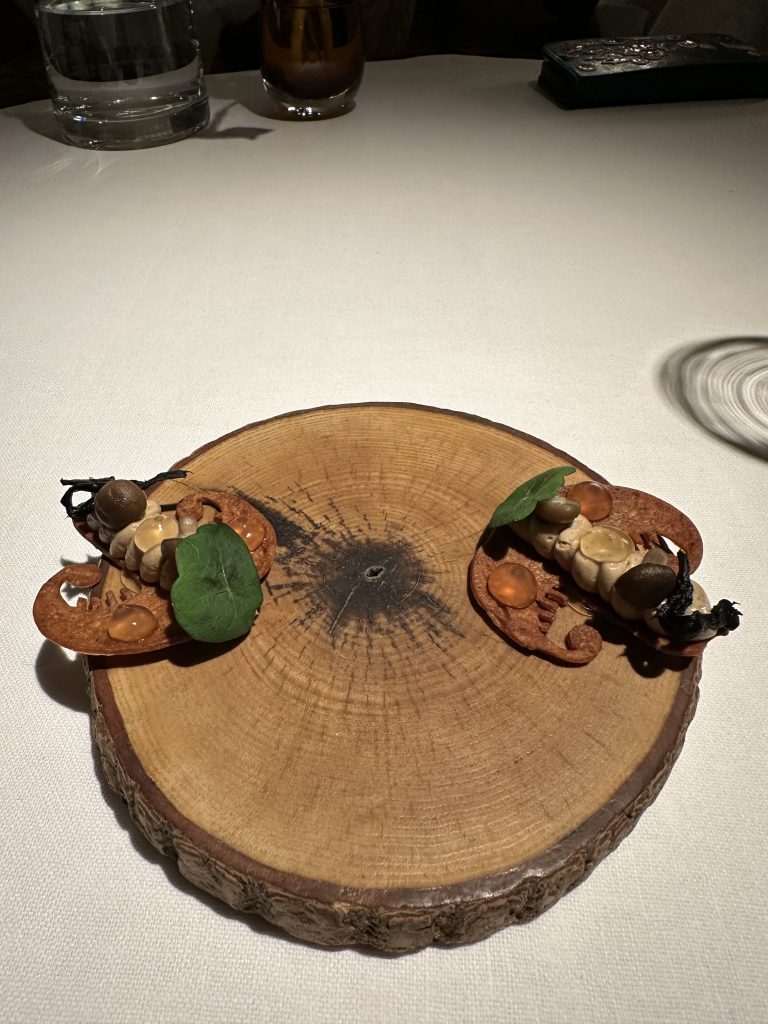
Gravetye’s Sussex Outreach
What I feel is so special and so hidden, unless you take the time to ask, is that they do so much for their local community. Here is how they contribute:
Chestnut Tree House, Children’s Hospice in Sussex: Fund raising through Tote bags in each of the guests rooms that can be purchased for just £10 to the charity. Each year Gravetye Manor hosts a fund raising garden festival event and generally raises between £5 – 8,000 a year.
Adopt a School Programme: They have adopted West Hoathly Primary School through the Royal Academy of Culinary Arts and their Chef goes in to teach them about cooking their own food from scratch – this and mentoring young chef’s is something he is passionate about. Their Chef is a Master of Culinary Arts so they host a number of events through them. Found this NEWS article on their website – during our third lockdown the staff made soup for everyone at the school, staff, pupils, parents.
Table Talk Foundation: A food collaboration – many of the restaurants in Sussex meet and raise funds for the ‘adopt a school’ programme. Through this they have put in a training kitchen in Plumpton College (Sussex), which is used for chef training of young people. They host guest chef dinners to raise money for both the Table Talk Foundation and the Adopt a School Programme.
Horticultural: You can book a garden tour at Gravetye either with lunch or separately if you are staying as a guest, well worth the money. Tom Coward, the head gardener, gives hours of help talking to visiting horticultural societies, community talks locally and abroad plus helping visiting Kew Diploma and PhD students with their dissertations. Add all of that up and that’s a lot of horticultural support and education – love it!
Wildflower Meadow: A rich environment for insects, so many of our meadows have gone to farming, but this one still contains many of the original bulbs planted by William Robinson. Five acres of meadow, carefully managed to maximise bio-diversity. It’s cut for hay, and the wildflower seeds are ‘shaken’ out and sent to other gardens in Sussex so they can re-create their own meadows! Celine dropped this into our conversation, and I was so inspired by every detail they are trying to look at here. Native solitary bees are supported in the gardens, as these are the best pollinators – needed for the fruit and vegetables.
Celine shared with me that she hopes to share more about the charity and horticultural programmes with guests in the future – and those that may be prepared to contribute a little more in this area can help to fund more programmes like these.
A Note On Sustainable Tourism
What is it we are trying to achieve here from the perspective of ‘sustainability? A set of tick boxes to get listed on some ‘green’ tourism website? Or hotels and resorts identifying what they CAN do, maximising the opportunities within their expertise areas when it comes to sustainability, ecology, the environment and bio-diversity? I would say the latter, wouldn’t you?
It’s a challenge getting the hospitality/tourism industry to talk to me about sustainable practices – not really surprising. Why? No two places are the same. Take a newly built hotel, it’s much easier to add in water stations on each floor than to retrospectively plumb these into a hotel that was built in the 1950’s. Gravetye Manor is a Grade I listed building, because of the gardens. It’s virtually impossible, to say replace the windows with double glazed units. We have to be careful that if hotels/resorts share the one or two really ‘good’, sustainable things they are doing, that we don’t shine a spotlight on the things they are not doing.
